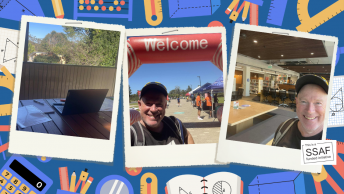This post is over three years old, the information may be outdated.
You’ve just moved to town for uni, decided it’s time for a career change, or maybe you’ve finally finished your degree, and it’s time to find a job. Except that can be a lot of people looking for a job all at once… so what do you do when you’re the one who misses out, especially when you’ve been through this before?
Firstly, accept it! It sounds harsh but being rejected is just a fact of life. If you think about it, when you get a job, someone else is missing out – so it’s bound to happen and it doesn’t mean it’s the end for you. Have a practical attitude and you will be able to get back up and try again.
Secondly, don’t take it personally. Another candidate may have been a better fit for the company or the company may end up recruiting internally. There are many reasons why you may not have been selected this time so rationalise it. And remember to research exactly what the company is looking for next time you apply.
Ask for feedback. However, be aware an employer can say no. Be sure to ask open-ended questions such as “what could I do better?”. Avoid threatening questions such as “what did I do wrong?”. Employers will be more likely to answer questions about your future improvement, so think positive instead of challenging them.
Top tip if you’ve been rejected over and over again: stop! Applying for 20 jobs is less likely to land you a job than putting effort into one application at a time. Quality over quantity never fails. Cut your search down to one job per week and take your time to research and prepare.
Also take a break to review where you’ve been getting stuck – e.g. work on your interview skills if you keep being rejected at the interview stage.
Finally, if you don’t feel like you’re improving, it’s time to talk to someone. CSU’s Career Development Service is available for up to 12 months after you graduate and accessible any time to answer questions, review your application, CV and cover letter or advise you on how to tackle the next stage.
Remember, how you deal with rejection says a lot about you and your professional development. Employers observe your attitude and perseverance in unexpected circumstances, so take what you can to improve from it and move on! Some say it’s not a rejection, rather a redirection.










